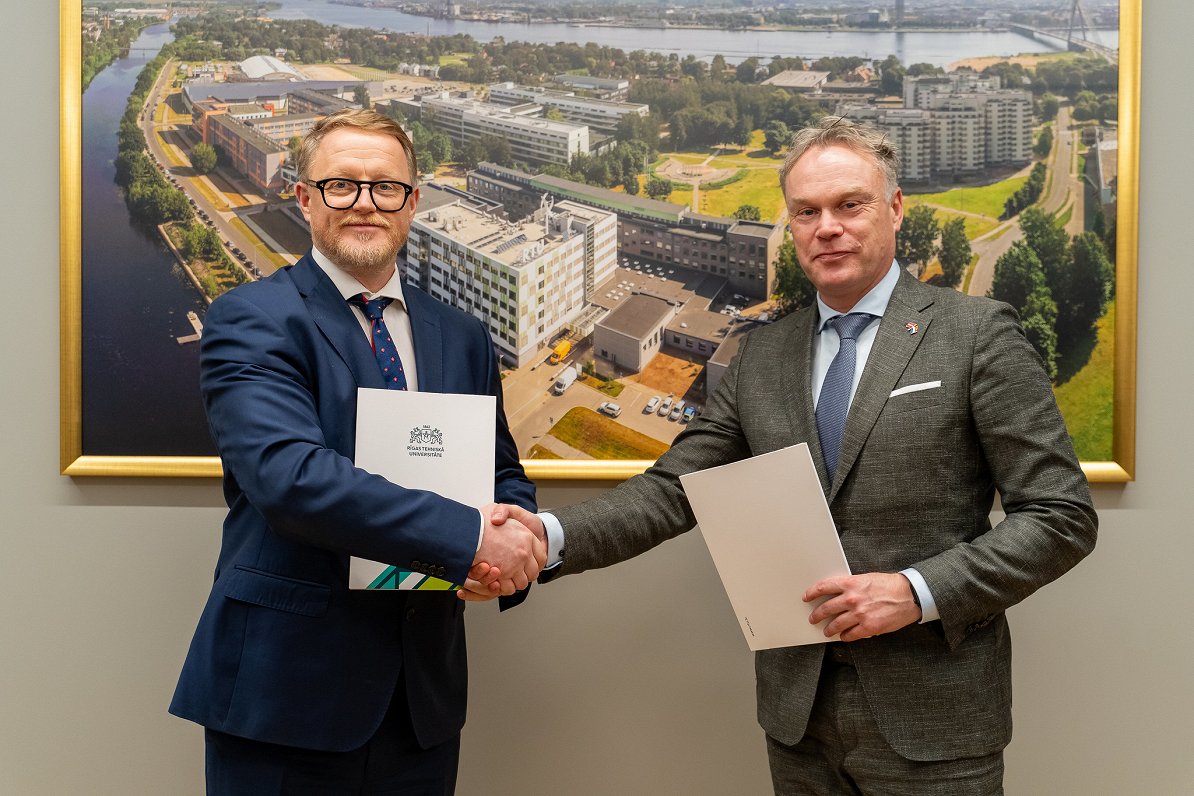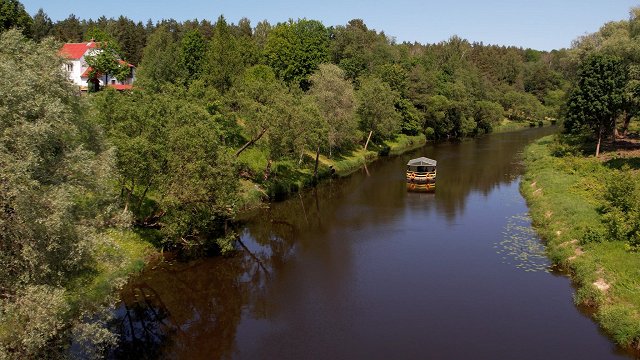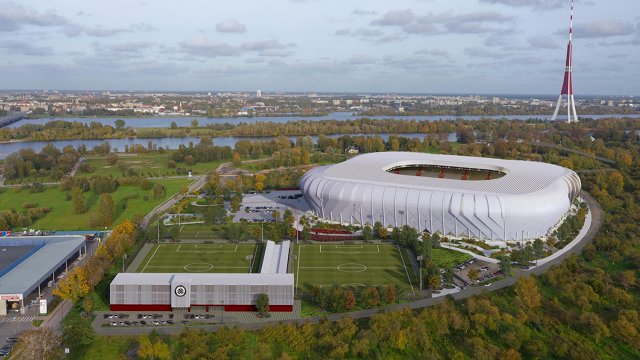Fokker Next Gen N.V. intends to build a hydrogen aircraft operations centre in Latvia, focusing on aircraft ground handling, airports and hydrogen infrastructure, as well as several other centres related to aircraft maintenance and production, including a final production line running along with the main line in the Netherlands.
The company is confident that hydrogen is the most efficient aviation fuel solution to meet the climate neutrality targets defined in the European Green Deal.
“I’m looking forward to extending the ecosystem and building on the international cooperation between knowledge institutions with regards to applying hydrogen technology in the aviation industry,” says CEO of Fokker Next Gen N.V. Juriaan Kellermann.
In order to implement such an ambitious project in Latvia, RTU Rector Tālis Juhna and the CEO of Fokker Next Gen N.V. Juriaan Kellermann signed a cooperation agreement, expressing their interest in jointly promoting research and innovation capabilities and developing a regional aviation innovation ecosystem, competing for national and international funding for education, research and innovation.
For the hydrogen aircraft operations engineering centre to be established in Latvia, it is essential to build on existing scientific and educational capacity, by conducting high-level research, attracting funding from the EU and other external sources, and commercialising the results, bringing innovative technologies to the market, for example. The development of highly educated human capital is of equal importance, said a release from RTU.
Hydrogen hopes
Hydrogen research is one of the areas where RTU is achieving scientific excellence with high added value for the future economy.
“RTU scientists have received international recognition for their research in this field, a particular highlight being the method developed by scientists from the RTU Faculty of Materials Science and Applied Chemistry in collaboration with colleagues from the University of Latvia, Faculty of Chemistry and Institute of Solid State Physics, for safe and efficient hydrogen production using innovative amphoterically decoupled electrolysis. Scientists are also researching the use of hydrogen in photonics, adapting the existing natural gas infrastructure for hydrogen transport and storage,” said RTU Rector Tālis Juhna.





























